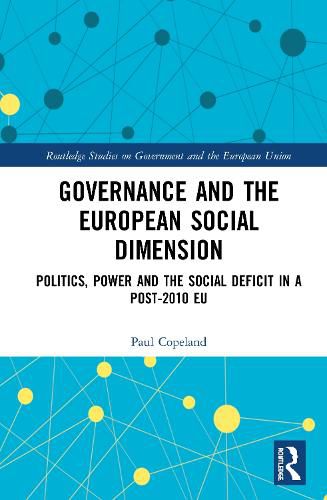Readings Newsletter
Become a Readings Member to make your shopping experience even easier.
Sign in or sign up for free!
You’re not far away from qualifying for FREE standard shipping within Australia
You’ve qualified for FREE standard shipping within Australia
The cart is loading…






Providing a comprehensive and authoritative analyses of the impact of the Eurozone crisis on the European social dimension since 2010 - understood as the European Union’s (EU) competence in employment and social policy - this book focusses on developments in five policy areas (employment, poverty and social exclusion, pensions, wages and healthcare), all of which form part of the EU’s economic reform strategy, Europe 2020.
It combines original empirical material and uses a unique theoretical approach to analyse the issue of EU governance and reveals that ‘progress’ under Europe 2020 has its consequences; notably a strengthened Brussels-led neoliberal prescription for EU social and employment policy problems.
By drawing insights from political sociology and the strategic-relational approach to actors/institutions, this book will be of interest to students and scholars interested in EU politics, EU governance, political sociology, public policy and European integration.
$9.00 standard shipping within Australia
FREE standard shipping within Australia for orders over $100.00
Express & International shipping calculated at checkout
Providing a comprehensive and authoritative analyses of the impact of the Eurozone crisis on the European social dimension since 2010 - understood as the European Union’s (EU) competence in employment and social policy - this book focusses on developments in five policy areas (employment, poverty and social exclusion, pensions, wages and healthcare), all of which form part of the EU’s economic reform strategy, Europe 2020.
It combines original empirical material and uses a unique theoretical approach to analyse the issue of EU governance and reveals that ‘progress’ under Europe 2020 has its consequences; notably a strengthened Brussels-led neoliberal prescription for EU social and employment policy problems.
By drawing insights from political sociology and the strategic-relational approach to actors/institutions, this book will be of interest to students and scholars interested in EU politics, EU governance, political sociology, public policy and European integration.